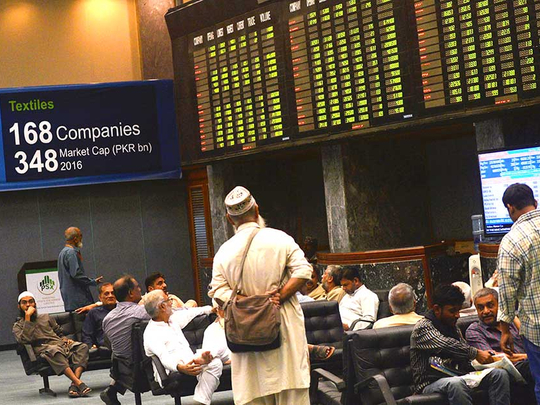
Islamabad: Pakistan’s key stock index slumped the most in more than eight years after a probe set up to investigate Prime Minister Nawaz Sharif’s wealth said it found evidence of possible corruption, plunging the country deeper into political crisis.
The Supreme Court is due to review findings that Sharif was unable to account for the disparity between his wealth and known sources of income, and will convene a hearing on July 17. If the court accepts the charges, it may lead to Sharif’s resignation or removal from power under the constitution.
“There exists a significant disparity between the wealth declared” and the means through which he generated income, according to a report by investigators appointed by the Supreme Court in April. The investigators submitted their report to a panel of justices, who ordered the report be made public on Monday.
If an accused cannot account for his sources of income, “the court shall presume, unless the contrary is proved, that the person is guilty of the offence of corruption,” the report reads.
Pakistan’s benchmark KSE100 Index declined 4.7 per cent at close in Karachi, the most since February, 2009 and the biggest loser among stocks globally. The report turned out to be more damaging than expected and investors will remain confused amid the biggest political ruction since the government took office in 2013, said Faisal Bilwani, head of equities at Elixir Securities Pakistan Pvt.
The Prime Minister’s daughter, Maryam Nawaz Sharif, rejected the report in tweet: “Every contradiction will not only be contested but decimated” in the Supreme Court, she wrote. “Not a single penny of public exchequer involved.”
Sharif will challenge the investigators’ findings in court, the minister for planning and reform, Ahsan Iqbal, said on Monday.
Damaged goods
The findings “will have a huge impact on Pakistani politics as it will become a major election issue,” political and security analyst Zahid Hussain said in Islamabad. “The major problem will be political uncertainty. Nawaz Sharif will be damaged goods.”
Opposition leader Imran Khan of the Pakistan Tehreek-e-Insaf party demanded Sharif to resign over the findings.
Removal of the prime minister from power could impede an economy which is growing its fastest in a decade. Sharif, who has pledged to step down if found guilty of graft by the court, has denied any wrongdoing.
Pakistan’s economy grew 5.3 per cent in 2016, it’s highest in 10 years, after Sharif averted a balance-of-payment crisis in 2013 with help from an International Monetary Fund loan and Chinese infrastructure and energy financing. The country’s benchmark stock index has plunged about 10 per cent since it was included in the MSCI Inc.’s emerging markets index in June.
“The PM being investigated for graft. Normally that’s a good investment opportunity when the markets fall due to political noise,” said Carsten Hesse, a London-based emerging-market equity strategist at Berenberg Bank, which doesn’t cover Pakistan. “That’s long term very positive as it will help the country to fight corruption and the next leader might not accept graft. We see the positive impact of a corruption investigation in Romania.”
Coup Prone
The top court took up graft charges against the premier in November after a report by the International Consortium of Investigative Journalists — known as the Panama Papers — showed Sharif’s children either owned or have signing rights to authorise transactions of four offshore companies in the British Virgin Islands. Those holdings were alleged to have been used to make property purchases in London. Sharif’s political rivals doubted the premier’s family obtained those assets legally.
Politicians in the coup-prone country have long been accused of corruption and have often been thrown out of power on charges which may have been hard to prove in court. Ruled by powerful military for much of its 70-year history, Pakistan ranks at 116 out of 176 countries in Transparency International’s 2016 corruption perception index.












